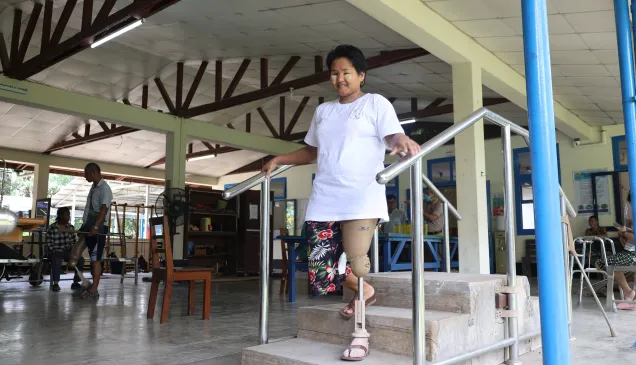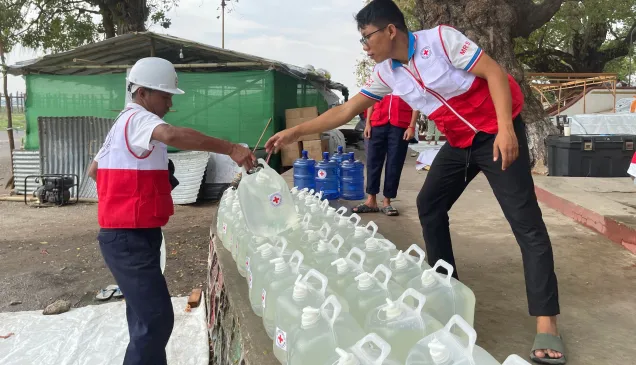Myanmar: Raising awareness of landmine risks, minimizing threat to lives
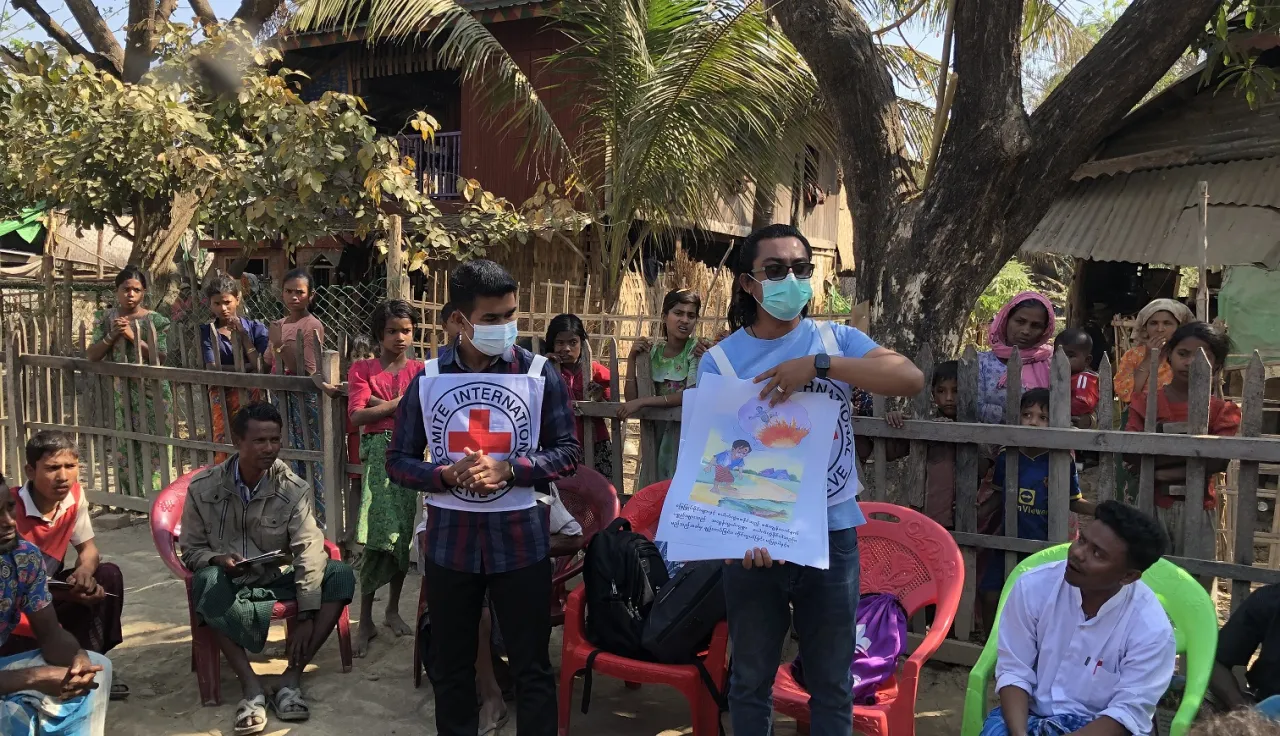
For decades, some communities in Myanmar have had to live alongside the impact of conflict.
The list of challenges caused by conflict is long: separation from loved ones, displacement, food insecurity, no access to clean water and health care, and other basic necessities.
Added to these, landmines and other explosive hazards continue to pose life-threatening danger to the people. In Rakhine State, women, children and men of all ages are exposed to these challenges, especially the hazard of landmines, that continue to disrupt their lives and livelihoods.
There are explosive objects in the nearby mountains. People know that it is dangerous to go into the woods and mountains but for those who rely on forestry activities for their livelihoods, it's hard to choose between risking their lives and not having any income
- a resident of Ah Htet Myat Lay village
The International Committee of the Red Cross (ICRC) works with the Myanmar Red Cross Society (MRCS) to promote awareness of the risks that landmines pose for all communities. By sharing life-saving information in our training sessions, which the participants then pass on to their communities, we can help thousands of people every year.
"Dangerous explosive hazards can be found in the forests and gardens close to where communities live. Since surveys and demining of land contaminated by such hazards remains uncertain, it is vital to continue our risk awareness sessions," said Ko Than Htun, who runs these training sessions for the ICRC.
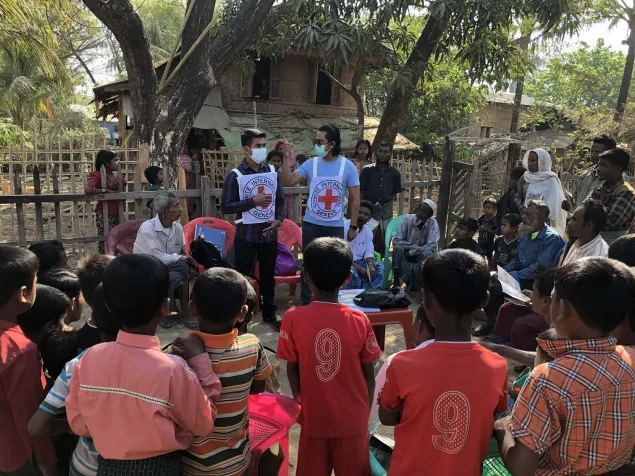
ICRC staff lead training sessions in Rakhine State to raise awareness of the risks that landmines pose to all communities.
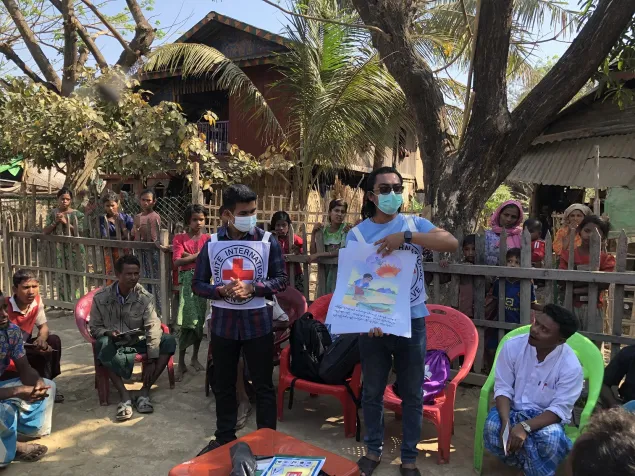
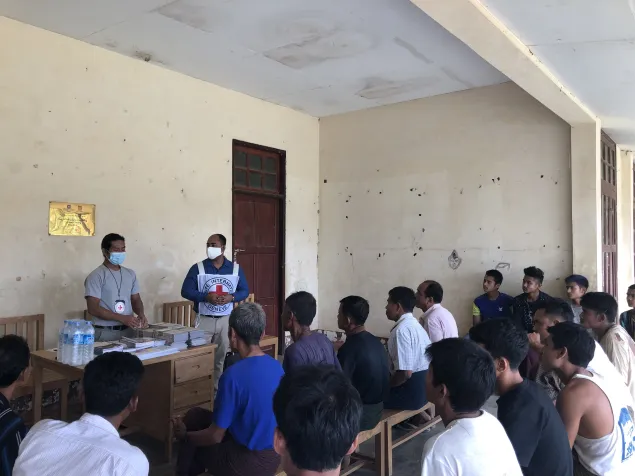
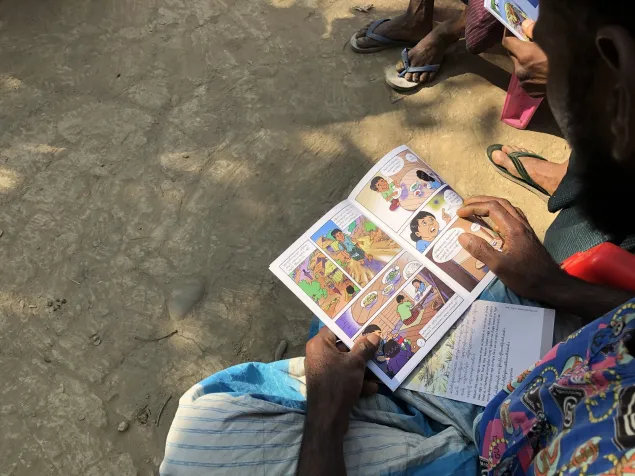
Besides these trainings, we also provide medical and financial assistance to survivors and families of landmine incidents. As a preventive measure, we also identify and label hazardous areas near villages to ensure that people are aware of the risks.
Across Myanmar, we help people affected by armed conflict understand the risks posed by landmines so that lives and livelihoods can continue in safety.


